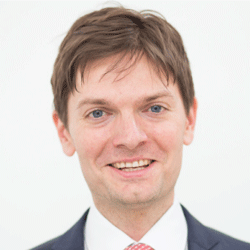From the blouwen Mundach to the Poosche Obend
windream wishes Happy Easter
Would you have known? Until the eighties of the last century, Low German was still spoken among the elder population of the rural south of Bochum. Low German as a German dialect was still widespread in many regions of the Ruhr area in the 20th century.
In the week before Easter there was a special tradition. People counted down the days until the eve of Easter. And it went like this: "Blouwen Mundach, schäib'n Dienstach, krumm'n Mittwoch, grein'n Dunnestach, stillen Fridach, Poosche Obend." In English language: Blue Monday, Crooked Tuesday, again a Crooked Wednesday, Green Thursday, Silent Friday, Poosche Obend.
Poosche Obend? What does that mean? Actually, there is a linguistic explanation for it. "Poosche" is nothing other than the Low German term for Easter. The Poosche Obend is thus after the "Silent Friday" the Saturday evening before Easter. From the etymology - thus according to the origin of the word - "Poosche" is in the original sense a derivative of "Pessach" or also "Passa(h)". With it the Jewish Passah feast was meant. So, at some point in the distant past, our Low German-speaking Christians adopted the Jewish term "Passover" into their Low German language and simply changed the meaning of the word to refer to their own Christian Easter.
But why were the days until Easter counted down? Counting down expressed the great anticipation of the coming Easter. It was, in a sense, a real "countdown," as we might say today. And the Poosche Obend - the evening before Easter or the Easter night - held and still holds a special tradition. For on that evening the Easter fires are lit in our region. The fire as a symbol of light displaces the blackness of the night. Isn't that what we all wish for in these uncertain times?

It is also no coincidence that one of the largest Easter fires in Bochum is still lit near the backdrop of the more than one thousand year old village church in Bochum-Stiepel. The church stands as a landmark of the city high above the Ruhr valley. At this historic location, it becomes especially clear to every visitor during the Easter night that the light will always ultimately conquer the darkness.

Stay up-to-date: Receive news about campaigns and events as well as interesting facts about digital document and process management in our monthly newsletter.
Subscribe now


